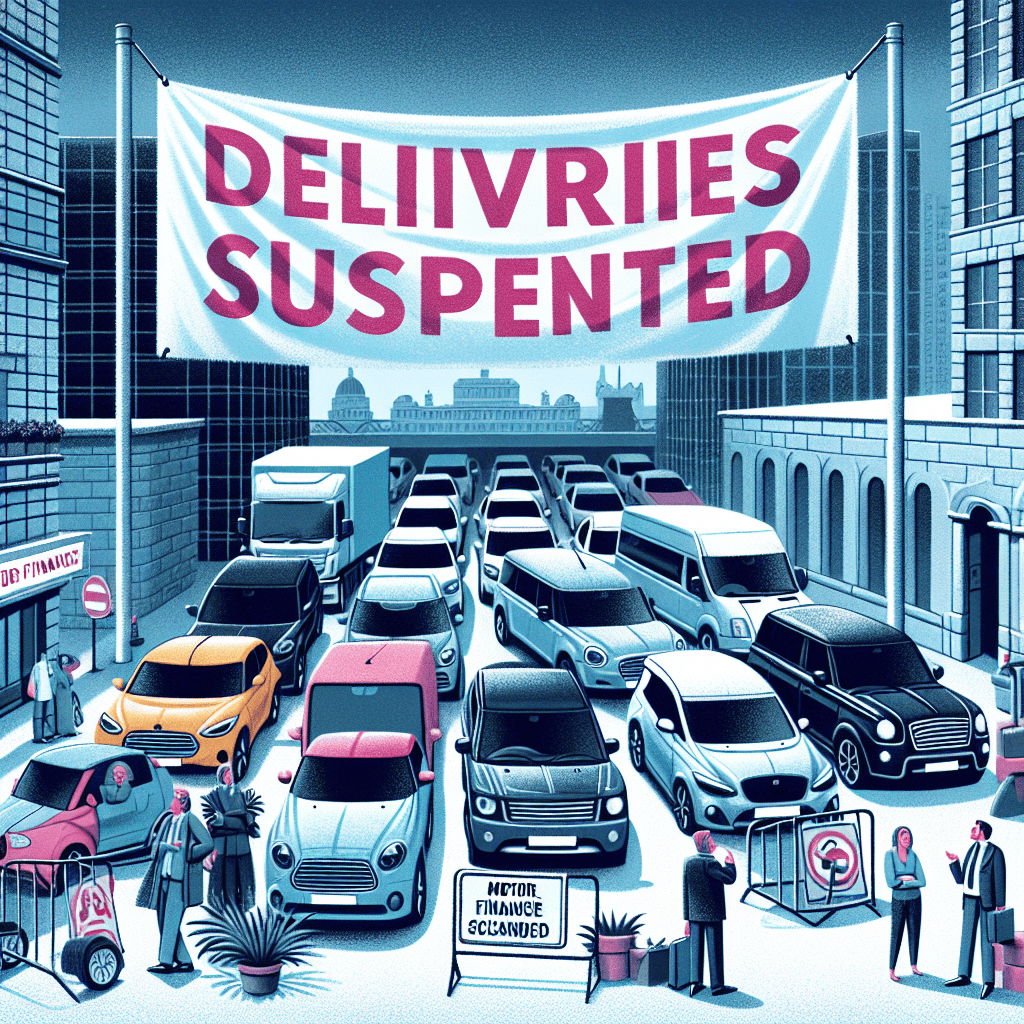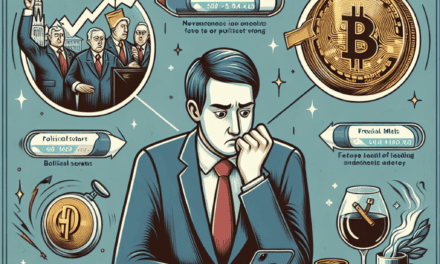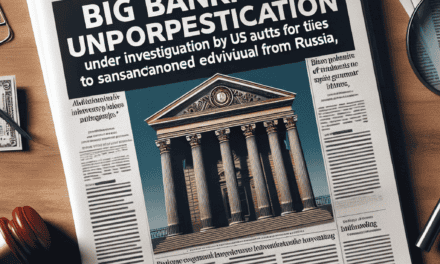“Driving Trust to a Halt: Unveiling the Motor Finance Scandal”
Introduction
Car deliveries have been halted amid growing concerns over a significant motor finance scandal that has sent shockwaves through the automotive industry. The suspension comes as authorities and financial institutions investigate allegations of widespread malpractice in the financing of vehicle purchases, which could potentially involve fraudulent activities, misrepresentation of financial agreements, and exploitation of consumers. This unfolding scandal has raised questions about the integrity of motor finance practices and the regulatory frameworks governing them, prompting a comprehensive review to protect consumers and restore trust in the market. As the investigation continues, the impact on car manufacturers, dealerships, and consumers remains uncertain, with potential repercussions for the broader economy.
Impact Of Motor Finance Scandal On Car Delivery Services
The recent suspension of car deliveries due to a burgeoning motor finance scandal has sent ripples through the automotive industry, affecting not only manufacturers and dealerships but also consumers eagerly awaiting their new vehicles. This development underscores the intricate relationship between financial institutions and the automotive sector, highlighting the potential vulnerabilities that can arise when financial practices come under scrutiny. As the scandal unfolds, it is crucial to understand the broader implications for car delivery services and the stakeholders involved.
At the heart of the issue is the revelation of questionable lending practices by several major motor finance companies. These practices, which include the misrepresentation of loan terms and the approval of loans to individuals with questionable creditworthiness, have raised alarms among regulators and industry watchdogs. Consequently, financial institutions have been compelled to reassess their lending criteria, leading to a temporary halt in the approval of new car loans. This, in turn, has directly impacted car delivery services, as dealerships find themselves unable to finalize sales without the necessary financing in place.
The suspension of car deliveries has created a domino effect, with dealerships experiencing a backlog of unsold vehicles. This situation is exacerbated by the fact that many consumers had already placed orders and were awaiting delivery, only to be informed of indefinite delays. For these consumers, the frustration is palpable, as they navigate the uncertainty of when they might finally receive their new cars. Moreover, the suspension has financial implications for dealerships, which rely on the steady turnover of inventory to maintain cash flow and meet operational expenses.
In addition to the immediate impact on consumers and dealerships, the motor finance scandal has broader ramifications for the automotive industry as a whole. Manufacturers, who depend on a robust sales pipeline to forecast production and manage supply chains, are now faced with the challenge of adjusting to fluctuating demand. This uncertainty can lead to production slowdowns, affecting not only the manufacturers themselves but also the myriad suppliers and workers who contribute to the automotive ecosystem.
Furthermore, the scandal has prompted a reevaluation of regulatory frameworks governing motor finance. Policymakers are now under pressure to implement stricter oversight and ensure that lending practices are transparent and fair. This could lead to more stringent regulations, which, while beneficial in preventing future misconduct, may also result in a more cautious lending environment. Such a shift could have long-term implications for consumers, particularly those with less-than-perfect credit histories, who may find it more challenging to secure financing for vehicle purchases.
As the industry grapples with these challenges, it is essential for stakeholders to collaborate in finding solutions that restore consumer confidence and stabilize the market. This may involve developing new financing models that prioritize transparency and consumer protection, as well as investing in technology to streamline the loan approval process. Additionally, open communication between financial institutions, dealerships, and consumers will be vital in navigating the complexities of the current situation.
In conclusion, the suspension of car deliveries amid a major motor finance scandal highlights the interconnectedness of financial practices and the automotive industry. While the immediate impact is evident in delayed deliveries and financial strain on dealerships, the long-term effects could reshape the landscape of motor finance and car sales. As the industry seeks to address these challenges, a focus on transparency, collaboration, and consumer protection will be key to ensuring a resilient and sustainable future.
How The Motor Finance Scandal Unfolded: A Timeline
The unfolding of the motor finance scandal, which has recently led to the suspension of car deliveries, is a complex narrative that has captured the attention of both industry insiders and the general public. This timeline aims to provide a clear understanding of how events transpired, leading to the current situation. Initially, the motor finance industry was thriving, with a significant increase in car sales driven by attractive financing options. However, beneath this veneer of success, irregularities began to surface, raising concerns among regulators and consumers alike.
The first signs of trouble emerged when a whistleblower from within a major motor finance company came forward, alleging that the company had been engaging in unethical practices. These practices included inflating customers’ incomes on loan applications to ensure approval and pushing high-interest loans onto unsuspecting buyers. As these allegations gained traction, regulatory bodies initiated investigations to determine the extent of the malpractice. Consequently, the industry faced increased scrutiny, with several companies being audited to ensure compliance with financial regulations.
As the investigations progressed, it became evident that the problem was more widespread than initially thought. Reports indicated that several other companies were involved in similar practices, leading to a broader inquiry into the industry’s operations. This revelation prompted a wave of consumer complaints, as individuals began to realize they had been misled into signing unfavorable loan agreements. In response, consumer protection agencies started to offer support and guidance to affected customers, further highlighting the gravity of the situation.
The scandal reached a critical point when a major motor finance company admitted to its involvement in the unethical practices, agreeing to cooperate with authorities in exchange for leniency. This admission not only validated the whistleblower’s claims but also set a precedent for other companies to come forward. As more companies confessed, the scale of the scandal became apparent, with billions of dollars in loans being called into question. This development led to a significant loss of trust in the industry, as consumers and investors alike began to question the integrity of motor finance companies.
In light of these revelations, regulatory bodies imposed stricter guidelines to prevent future occurrences of such malpractices. These measures included more rigorous checks on loan applications and increased transparency in the terms and conditions of financing agreements. However, the damage had already been done, and the industry faced a significant reputational crisis. As a result, car deliveries were suspended as companies scrambled to reassess their financing models and ensure compliance with the new regulations.
The suspension of car deliveries has had a ripple effect throughout the automotive industry, affecting manufacturers, dealerships, and consumers. Manufacturers have been forced to adjust production schedules, while dealerships face mounting pressure to address customer concerns and manage inventory. Consumers, on the other hand, are left in a state of uncertainty, unsure of when they will receive their vehicles or if their financing agreements will be honored.
In conclusion, the motor finance scandal has exposed significant flaws within the industry, prompting a reevaluation of practices and policies. While the suspension of car deliveries is a temporary measure, it serves as a stark reminder of the importance of ethical conduct and transparency in financial dealings. As the industry works to rebuild trust and restore its reputation, it is crucial for all stakeholders to remain vigilant and committed to upholding the highest standards of integrity.
Consumer Rights: What To Do If Your Car Delivery Is Suspended
In recent weeks, the automotive industry has been rocked by a major motor finance scandal, leading to the suspension of car deliveries across several regions. This development has left many consumers in a state of uncertainty, wondering about the implications for their pending vehicle purchases. As the situation unfolds, it is crucial for affected consumers to understand their rights and the steps they can take to navigate this challenging scenario.
First and foremost, it is important for consumers to remain informed about the status of their car delivery. Communication is key, and reaching out to the dealership or finance company involved in the transaction should be a priority. By doing so, consumers can gain clarity on the reasons behind the suspension and any potential timelines for resolution. In many cases, dealerships may be able to provide updates or alternative solutions, such as offering a temporary vehicle or rescheduling the delivery date.
In addition to direct communication with the dealership, consumers should also review the terms and conditions of their purchase agreement. This document often contains crucial information regarding the rights and obligations of both parties in the event of a delay or suspension. Understanding these terms can empower consumers to make informed decisions and, if necessary, negotiate with the dealership for a satisfactory resolution.
Moreover, consumers should be aware of their rights under consumer protection laws. In many jurisdictions, these laws provide safeguards for individuals who have entered into contracts for goods and services. If a car delivery is suspended due to circumstances beyond the consumer’s control, such as a finance scandal, they may be entitled to certain remedies. These could include the right to cancel the contract and receive a full refund, or to seek compensation for any additional costs incurred as a result of the delay.
While navigating this situation, it is also advisable for consumers to document all communications and transactions related to their car purchase. Keeping a detailed record can be invaluable if disputes arise or if legal action becomes necessary. This documentation should include copies of emails, letters, and any notes from phone conversations with the dealership or finance company.
Furthermore, consumers may wish to seek advice from a legal professional or a consumer rights organization. These experts can provide guidance tailored to the specific circumstances of the case and help consumers understand their options. They can also assist in drafting any necessary correspondence or in pursuing legal action if the situation cannot be resolved amicably.
As the motor finance scandal continues to unfold, it is essential for consumers to remain vigilant and proactive. By staying informed, understanding their rights, and seeking appropriate advice, they can better protect their interests and work towards a satisfactory resolution. While the suspension of car deliveries is undoubtedly a frustrating experience, taking these steps can help mitigate the impact and ensure that consumers are not left at a disadvantage.
In conclusion, the suspension of car deliveries due to the motor finance scandal presents a complex challenge for consumers. However, by maintaining open communication with dealerships, reviewing contractual obligations, understanding consumer rights, and seeking professional advice, individuals can navigate this situation more effectively. As the industry works towards resolving the underlying issues, consumers can take comfort in knowing that they have the tools and resources available to protect their interests and achieve a fair outcome.
The Role Of Financial Institutions In The Motor Finance Scandal

The recent suspension of car deliveries due to a burgeoning motor finance scandal has cast a spotlight on the intricate role financial institutions play in the automotive industry. As the scandal unfolds, it becomes increasingly clear that these institutions are not merely passive facilitators of vehicle purchases but are deeply entwined in the mechanisms that have led to the current crisis. To understand the gravity of the situation, one must first appreciate the complex web of relationships between car manufacturers, dealerships, and financial entities.
Financial institutions have long been pivotal in enabling consumers to purchase vehicles through various financing options. These options, ranging from traditional loans to more contemporary leasing agreements, have made car ownership accessible to a broader demographic. However, this accessibility has not come without its pitfalls. The aggressive marketing of financial products, often with opaque terms and conditions, has led to a situation where many consumers find themselves in precarious financial positions. This has been exacerbated by the recent revelations of unethical practices within some financial institutions, which have prioritized profit over consumer protection.
The scandal has brought to light several malpractices, including the misrepresentation of loan terms, the manipulation of interest rates, and the failure to conduct adequate affordability assessments. These practices have not only undermined consumer trust but have also raised questions about the regulatory frameworks governing the motor finance sector. Financial institutions, in their quest for higher returns, have sometimes overlooked the due diligence required to ensure that consumers are not overburdened by debt. This oversight has contributed significantly to the current crisis, where a substantial number of consumers are unable to meet their financial obligations, leading to a spike in vehicle repossessions.
Moreover, the role of financial institutions extends beyond the provision of loans. They are also instrumental in the securitization of auto loans, a process that involves bundling these loans into securities that are sold to investors. While this practice is not inherently problematic, it becomes concerning when the underlying loans are of poor quality. The current scandal has revealed that some financial institutions have been complicit in packaging subprime auto loans as high-quality securities, misleading investors and contributing to systemic risk within the financial system.
In response to the scandal, regulatory bodies are now scrutinizing the practices of financial institutions more closely. There is a growing call for stricter regulations to ensure transparency and accountability in the motor finance sector. Financial institutions are being urged to adopt more robust risk management practices and to prioritize ethical considerations in their operations. This includes conducting thorough affordability assessments and providing clear, concise information to consumers about the terms of their loans.
As the investigation into the motor finance scandal continues, it is evident that financial institutions must play a proactive role in restoring consumer confidence. This involves not only rectifying past wrongs but also committing to more sustainable and ethical business practices moving forward. The suspension of car deliveries serves as a stark reminder of the consequences of neglecting these responsibilities. Ultimately, the resolution of this scandal will depend on the willingness of financial institutions to embrace reform and to work collaboratively with regulators, manufacturers, and consumers to rebuild a more resilient and trustworthy motor finance ecosystem.
Alternative Transportation Options Amid Car Delivery Suspensions
The recent suspension of car deliveries due to a burgeoning motor finance scandal has left many consumers in a state of uncertainty, prompting a search for alternative transportation options. As the investigation into the scandal unfolds, it is becoming increasingly clear that the ramifications could be far-reaching, affecting not only the automotive industry but also the daily lives of countless individuals who rely on personal vehicles for their mobility needs. In light of these developments, it is essential to explore viable alternatives that can bridge the gap during this period of disruption.
Public transportation emerges as a primary alternative for those affected by the suspension of car deliveries. Cities with well-developed transit systems offer a reliable and cost-effective means of commuting. Buses, trains, and subways provide extensive coverage, allowing individuals to navigate urban environments with relative ease. Moreover, public transportation reduces the environmental impact associated with personal vehicle use, aligning with broader sustainability goals. However, it is important to acknowledge that public transit may not be a feasible option for everyone, particularly those residing in rural or suburban areas where such services are limited or nonexistent.
In addition to public transportation, ride-sharing services present another viable option. Companies like Uber and Lyft have revolutionized the way people think about transportation, offering a convenient and flexible alternative to car ownership. These services can be particularly beneficial for those who require occasional vehicle access without the long-term commitment of purchasing a car. Furthermore, ride-sharing can alleviate some of the financial burdens associated with car ownership, such as maintenance, insurance, and fuel costs. Nevertheless, the availability and affordability of ride-sharing services can vary significantly depending on location, which may limit their accessibility for some individuals.
For those seeking a more active mode of transportation, cycling and walking offer health benefits in addition to being environmentally friendly. Many cities have invested in infrastructure to support cyclists and pedestrians, including dedicated bike lanes and pedestrian-friendly pathways. This shift towards active transportation not only promotes physical well-being but also contributes to reduced traffic congestion and improved air quality. However, weather conditions and distance can pose challenges, making these options less practical for longer commutes or in regions with harsh climates.
Car-sharing programs also provide an innovative solution for those in need of temporary vehicle access. These programs allow individuals to rent vehicles on a short-term basis, offering flexibility without the long-term financial commitment of ownership. Car-sharing can be particularly advantageous for those who require a vehicle for specific occasions, such as weekend trips or errands that necessitate a car. As with ride-sharing, the availability of car-sharing services can vary, and potential users should consider the proximity of available vehicles and associated costs.
In conclusion, while the suspension of car deliveries due to the motor finance scandal presents significant challenges, it also offers an opportunity to explore alternative transportation options. Public transportation, ride-sharing, cycling, walking, and car-sharing each present unique advantages and limitations. By considering these alternatives, individuals can navigate the current landscape with greater flexibility and resilience. As the situation evolves, it is crucial for consumers to remain informed and adaptable, ensuring that their transportation needs are met in a manner that aligns with their personal circumstances and values.
Lessons Learned From The Motor Finance Scandal For Future Buyers
The recent suspension of car deliveries due to a major motor finance scandal has sent ripples through the automotive industry, leaving both consumers and industry professionals grappling with the implications. This scandal, which has exposed significant flaws in the motor finance sector, offers valuable lessons for future car buyers. As the dust begins to settle, it is crucial to examine these lessons to ensure that consumers are better equipped to navigate the complexities of car financing in the future.
To begin with, transparency in financial agreements is paramount. The scandal has highlighted how opaque terms and conditions can lead to misunderstandings and, ultimately, financial distress for consumers. Many buyers found themselves locked into unfavorable contracts due to a lack of clear information. Therefore, it is essential for future buyers to demand full transparency from lenders. This includes a comprehensive understanding of interest rates, repayment terms, and any potential penalties for early repayment or default. By insisting on clarity, consumers can make more informed decisions and avoid the pitfalls that have ensnared so many in this scandal.
Moreover, the importance of conducting thorough research cannot be overstated. The scandal has underscored the necessity for buyers to diligently research both the vehicles they are interested in and the financial institutions offering loans. This involves comparing different financing options, reading reviews, and seeking advice from trusted sources. By doing so, consumers can identify reputable lenders and avoid those with a history of unethical practices. Additionally, understanding the true cost of ownership, including insurance, maintenance, and depreciation, can help buyers make more financially sound decisions.
Another critical lesson from the scandal is the need for regulatory oversight. The lack of stringent regulations allowed some lenders to engage in predatory practices, exploiting consumers who were unaware of their rights. Moving forward, it is imperative for regulatory bodies to implement and enforce stricter guidelines to protect consumers. This includes regular audits of financial institutions and the establishment of clear standards for loan agreements. For consumers, staying informed about their rights and the regulations governing motor finance can provide an added layer of protection against unscrupulous lenders.
Furthermore, the scandal has highlighted the significance of creditworthiness and financial literacy. Many consumers affected by the scandal were unaware of how their credit scores impacted their loan terms. Future buyers should prioritize understanding their credit reports and taking steps to improve their creditworthiness before seeking financing. This not only increases the likelihood of securing favorable loan terms but also empowers consumers to negotiate better deals. Additionally, enhancing financial literacy through educational resources can equip buyers with the knowledge needed to navigate the complexities of motor finance confidently.
In conclusion, the motor finance scandal serves as a stark reminder of the potential pitfalls in the car buying process. By emphasizing transparency, conducting thorough research, advocating for regulatory oversight, and improving financial literacy, future buyers can safeguard themselves against similar issues. As the industry works to rebuild trust, consumers must remain vigilant and proactive in their approach to car financing. By learning from the lessons of this scandal, buyers can make more informed decisions, ultimately leading to a more secure and satisfactory car ownership experience.
The Economic Ripple Effect Of Suspended Car Deliveries
The recent suspension of car deliveries due to a burgeoning motor finance scandal has sent ripples through the economy, affecting not only the automotive industry but also a wide array of interconnected sectors. This decision, prompted by allegations of widespread financial misconduct, has raised significant concerns about the stability of the motor finance market and its broader economic implications. As the scandal unfolds, it is crucial to understand the multifaceted impact of this suspension on various stakeholders, from manufacturers and dealerships to consumers and financial institutions.
To begin with, the immediate effect of suspended car deliveries is most acutely felt by automotive manufacturers and dealerships. These entities rely heavily on a steady flow of vehicle sales to maintain their operations and profitability. With deliveries halted, manufacturers face mounting inventory costs and potential production slowdowns, as unsold vehicles accumulate in storage facilities. Dealerships, on the other hand, are grappling with dwindling sales and cash flow challenges, which could lead to layoffs and, in severe cases, closures. This disruption in the automotive supply chain underscores the vulnerability of businesses that depend on consistent market activity.
Moreover, the suspension has significant ramifications for consumers who are caught in the crossfire. Many individuals who have already committed to purchasing vehicles are now left in limbo, uncertain about the status of their transactions. This uncertainty not only affects their immediate transportation needs but also erodes consumer confidence in the motor finance system. As trust diminishes, potential buyers may become hesitant to engage in future transactions, further exacerbating the slowdown in the automotive market.
In addition to the direct impact on the automotive sector, the suspension of car deliveries has broader economic consequences. The motor finance scandal has prompted financial institutions to reassess their lending practices and tighten credit conditions. This shift could lead to a contraction in consumer credit availability, affecting not only car loans but also other forms of consumer financing. As access to credit becomes more restricted, consumer spending may decline, potentially slowing economic growth.
Furthermore, the scandal has drawn the attention of regulatory bodies, which are now scrutinizing the practices of motor finance companies more closely. This increased regulatory oversight could lead to stricter compliance requirements and higher operational costs for these companies. While such measures are necessary to restore integrity to the market, they may also result in reduced profitability and increased financial strain for motor finance providers.
The ripple effect of suspended car deliveries extends beyond the immediate stakeholders, influencing related industries such as insurance, advertising, and logistics. Insurance companies, for instance, may experience a decline in new policy sales as fewer vehicles are purchased. Similarly, advertising agencies that cater to the automotive sector could see a reduction in demand for their services. Logistics companies, responsible for transporting vehicles from manufacturers to dealerships, may also face decreased business activity.
In conclusion, the suspension of car deliveries amid a major motor finance scandal has far-reaching economic implications. While the immediate impact is felt by manufacturers, dealerships, and consumers, the broader effects extend to financial institutions, regulatory bodies, and related industries. As the situation continues to evolve, it is essential for all stakeholders to navigate these challenges with caution and adaptability, ensuring that the integrity of the motor finance market is restored and economic stability is maintained.
Q&A
1. **What is the major motor finance scandal about?**
The scandal involves allegations of fraudulent practices in motor finance agreements, including misrepresentation of loan terms and inflated vehicle prices.
2. **Which companies are involved in the scandal?**
Several major car manufacturers and finance companies are implicated, though specific names may vary depending on the region and investigation.
3. **Why have car deliveries been suspended?**
Deliveries have been suspended to prevent further financial risk and to allow time for investigations into the alleged fraudulent activities.
4. **How are consumers affected by the suspension?**
Consumers may face delays in receiving their vehicles, potential changes in finance agreements, or difficulties in obtaining refunds or compensation.
5. **What actions are regulators taking in response to the scandal?**
Regulators are conducting investigations, reviewing finance agreements, and may impose fines or sanctions on companies found guilty of misconduct.
6. **What impact does the scandal have on the automotive industry?**
The scandal could lead to a loss of consumer trust, financial losses for companies involved, and stricter regulations in the motor finance sector.
7. **Are there any legal proceedings underway related to the scandal?**
Yes, legal proceedings may be initiated against companies and individuals involved, including lawsuits and criminal charges, depending on the findings of ongoing investigations.
Conclusion
The suspension of car deliveries due to concerns over a major motor finance scandal highlights significant vulnerabilities within the automotive finance sector. This situation underscores the need for stringent regulatory oversight and transparency in financial dealings to protect consumers and maintain market integrity. The halt in deliveries not only affects manufacturers and dealerships but also disrupts consumer trust and confidence in the industry. Moving forward, it is crucial for stakeholders to address these issues promptly and implement robust measures to prevent future occurrences, ensuring a stable and trustworthy automotive finance environment.





